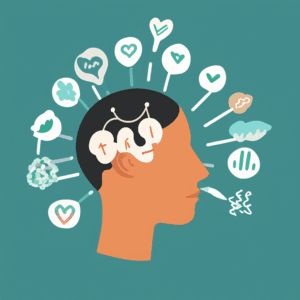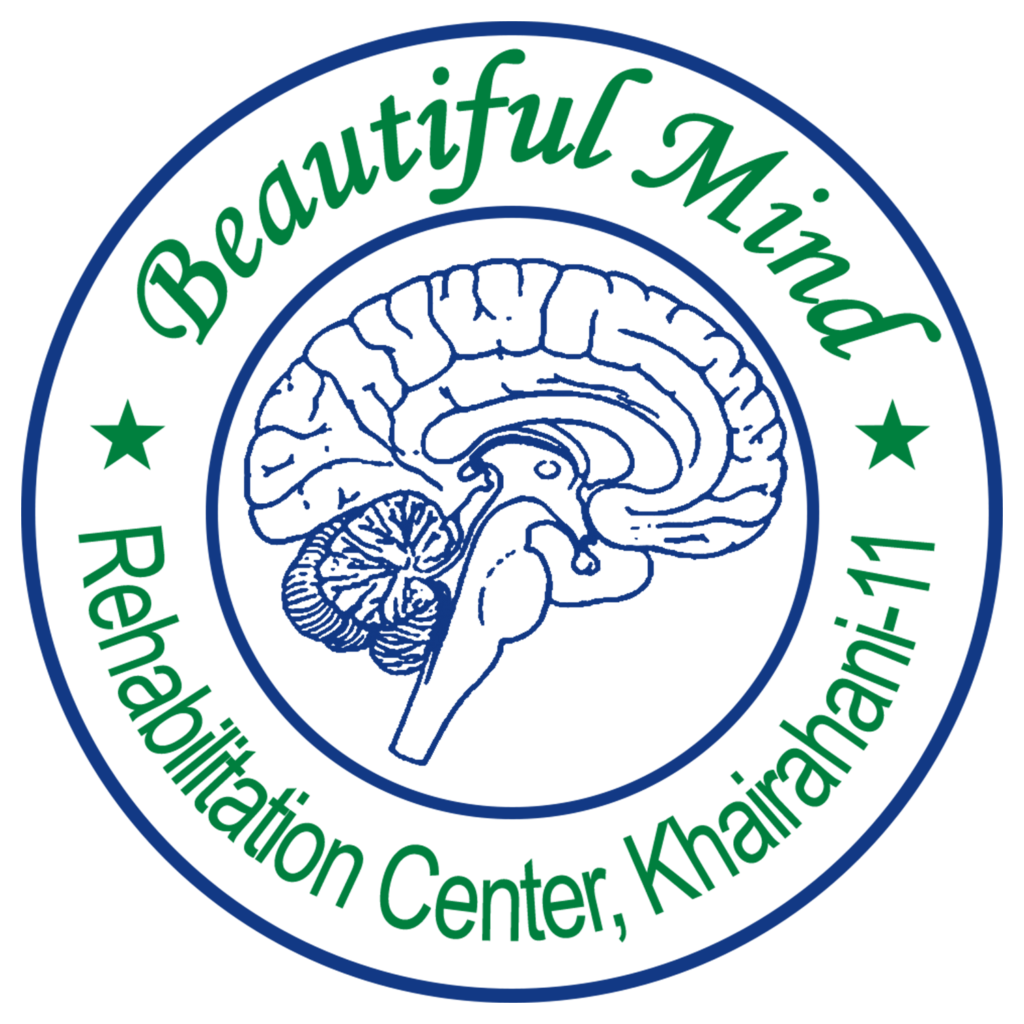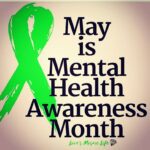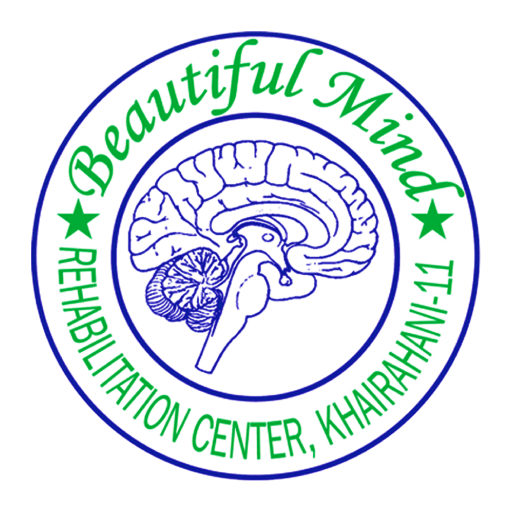🧠 The Power of Early Mental Health Treatment in Nepal: Changing Lives Before It’s Too Late
By Beautiful Mind Institute of Psychiatry
📍 Khaireni-11, Gaidaha, Parsa, Chitwan
📞 +977-98550945843 | +977-9855094582 | +977-9855094584
🌐 https://beautifulmind.com.np
Introduction: Why “Early” Matters More Than Ever
In Nepal, where silence often surrounds mental health struggles, one of the most powerful yet underutilized tools in mental wellness is early intervention. Whether it’s the first panic attack, a sudden drop in motivation, or unexplained anger, these early symptoms are our mind’s way of crying out for support. Sadly, due to stigma, lack of awareness, and limited access, help often comes late—or not at all.
At Beautiful Mind Institute of Psychiatry, we believe that early mental health treatment saves not only years of suffering, but often lives themselves.

Understanding Mental Health in the Nepali Context
1. Mental Illness Isn’t Rare in Nepal
More than 1 in 4 Nepalis will experience a mental health issue at some point in life—ranging from anxiety and depression to psychosis, PTSD, or substance use disorders.
Yet, most suffer in silence because:
- They don’t know what they’re going through has a name.
- They fear being called “pagal.”
- Or they believe it will pass on its own.
2. Stigma Delays Diagnosis
Many families hide symptoms, fearing judgment. Early warning signs are dismissed as mood swings, laziness, or attention-seeking behavior. By the time someone gets help, conditions may be advanced and more difficult to treat.
What Is Early Mental Health Treatment?
Early mental health treatment means:
- Identifying and addressing symptoms at the earliest stage.
- Before the illness affects school, relationships, work, or self-worth.
Just like with physical illnesses, catching mental disorders early:
- Makes recovery faster.
- Reduces complications.
- Prevents hospitalization.
Examples include:
- Seeing a counselor after the first signs of depression.
- Talking to a psychiatrist when panic attacks begin.
- Addressing substance use in its early stages before addiction sets in.

Signs You Shouldn’t Ignore
Here are early red flags often overlooked:
| Emotional | Behavioral | Physical |
|---|---|---|
| Sadness or emptiness | Withdrawal from loved ones | Constant fatigue |
| Mood swings | Sleeping too much or too little | Headaches or body aches with no cause |
| Anxiety or worry | Sudden drop in academic/work performance | Appetite changes |
| Irritability or anger outbursts | Avoiding responsibilities | Rapid heartbeat |
Benefits of Seeking Early Treatment
1. Faster Recovery
Treating a small fire is easier than extinguishing a forest blaze. Therapy, medication, and lifestyle changes work best when symptoms are mild or moderate.
2. Improved Relationships
Getting support early prevents the breakdown of family, work, and social connections.
3. Reduced Hospitalizations
Early care helps avoid crises, self-harm, or severe psychotic episodes that may require intensive hospitalization.
4. Prevention of Suicide
Nepal has one of the highest suicide rates in South Asia. Most suicides are preventable—if emotional distress is recognized and addressed early.
5. Better Long-Term Outcomes
People who receive timely care have:
- Higher functioning
- Greater independence
- More chances of living meaningful, fulfilling lives

Barriers to Early Mental Health Care in Nepal
Despite its importance, early treatment is often delayed due to:
🧍♀️ Social Stigma
Calling someone “manasik rog” can lead to shame, gossip, or isolation.
📚 Lack of Mental Health Literacy
Many families and schools don’t know how to identify mental distress.
🚫 Limited Access to Services
Mental health professionals are scarce outside major cities. Beautiful Mind is one of the few holistic psychiatric centers in the Chitwan region.
💸 Financial Barriers
Cost concerns stop people from seeking care, though early treatment is often cheaper than long-term illness management.
What Makes Early Treatment at Beautiful Mind Different?
At Beautiful Mind Institute of Psychiatry, early intervention is our top priority. Here’s how we support it:
✅ Comprehensive Screening
We assess emotional, behavioral, and biological symptoms—even when they’re subtle.
✅ Multi-disciplinary Team
Psychiatrists, counselors, occupational therapists, and yoga instructors work together.
✅ Child, Teen, Adult & Geriatric Programs
Tailored support for all age groups, with a special focus on early diagnosis in youth.
✅ Confidential, Compassionate Care
No judgment. Just support. Always.
✅ Integration of Holistic Methods
We don’t just medicate. We heal through:
- Yoga and mindfulness
- Counseling
- Music and dance therapy
- Vocational rehabilitation
Real Stories: How Early Help Changed Lives
Case 1: A 17-Year-Old with Social Anxiety
After three years of avoiding school, a teen came to Beautiful Mind. Through therapy, peer support, and confidence-building activities, he rejoined school and even started tutoring others.
Case 2: A Young Mother Facing Postpartum Depression
She was dismissed by family as “emotional.” Early psychiatric intervention and family counseling not only healed her—but strengthened the family as a whole.
How to Take the First Step
If you’re unsure whether you or your loved one needs help, don’t wait for it to get worse. Talk to someone. Visit a professional. You don’t need a diagnosis to start healing.
Early care is brave care.
You’re Not Alone: Support Is Here
🌱 Whether it’s your first sign of burnout, your child’s behavior change, or a loved one feeling lost—Beautiful Mind Institute is here to guide you back to balance.
Visit or Contact Us:
🏥 Beautiful Mind Institute of Psychiatry
📍 Khaireni-11, Gaidaha, Parsa, Chitwan, Nepal
📞 +977-98550945843 (Hira Ale Magar)
📞 +977-9855094582 (Ansuda Poudel)
📞 +977-9855094584 (Kamal Sharma Bushal)
🌐 https://beautifulmind.com.np
Final Thought: Early Is Powerful. Early Is Possible.
Let’s build a Nepal where seeking help early is a strength, not a stigma. Let’s teach our children that just like we treat a cough before it becomes pneumonia—we treat sadness before it becomes despair.
Together, we can change lives before it’s too late.
Would you like me to:
- Turn this into a printable pamphlet or PDF?
- Break it down for reels, carousels, or a voiceover script?
- Translate into Nepali or make a shorter version for radio/social?
Let’s keep the momentum going 🔥
🧠 Frequently Asked Questions (FAQs)
1. What is early mental health treatment?
Early mental health treatment involves recognizing and addressing mental health symptoms as soon as they arise—before they develop into severe disorders or crises.
2. Why is early intervention important in mental health?
Because the earlier mental health issues are treated, the more effective the recovery. Early care reduces long-term suffering, hospitalizations, and suicide risk.
3. What are some early signs of mental illness I should look for?
Changes in mood, sleep, energy, motivation, appetite, behavior, or emotional stability. Avoidance, withdrawal, or loss of interest are also red flags.
4. How common are mental health problems in Nepal?
Roughly 25% of Nepalis experience mental health issues at some point, but most go undiagnosed or untreated due to stigma or lack of access.
5. Can mental illness be cured if caught early?
Many mental health conditions can be effectively managed or even resolved with early treatment, therapy, lifestyle changes, and sometimes medication.
6. How does Beautiful Mind approach early mental health care?
We use a holistic, multidisciplinary approach combining psychiatry, counseling, yoga, psychoeducation, and family therapy to intervene early.
7. Is early treatment available for children and teens?
Yes. Early emotional or behavioral changes in children and adolescents are taken seriously, and Beautiful Mind offers age-specific interventions.
8. Do I need a diagnosis to seek early treatment?
No. You can visit even if you only suspect something is wrong. A proper assessment will help you understand your mental state better.
9. Will seeking early mental health support make me dependent on medication?
Not necessarily. Many mild or early-stage issues can be treated through counseling, lifestyle changes, and non-medical therapies.
10. Is early treatment expensive?
Early intervention often prevents the need for more expensive, long-term care. At Beautiful Mind, we offer affordable and tailored packages.
11. What if my family doesn’t believe in mental health treatment?
This is common in Nepal. We offer family counseling and psychoeducation to help break stigma and build understanding together.
12. How soon should I seek help after symptoms begin?
Ideally, within weeks of noticing emotional, behavioral, or cognitive changes. Don’t wait for symptoms to worsen.
13. Can stress or anxiety turn into more serious conditions if ignored?
Yes. Prolonged untreated stress or anxiety can lead to depression, panic disorders, physical illnesses, or substance use.
14. Does early intervention prevent suicide?
Absolutely. Early recognition and treatment of suicidal thoughts or mental health conditions significantly reduce suicide risk.
15. Are there early interventions for substance use problems?
Yes. We offer early-stage substance use counseling and support to prevent dependency and long-term addiction.
16. How long does early treatment take to show results?
Results vary but many people feel improvement within weeks of consistent therapy or supportive intervention.
17. Is early treatment only for people with severe mental illness in their family history?
No. Anyone can experience mental health issues, and early help is for everyone—whether there’s a family history or not.
18. Can yoga or meditation really help with early mental health symptoms?
Yes. Mind-body therapies like yoga, mindfulness, and breathing exercises are effective tools for early emotional regulation.
19. What if the person refuses help?
This is common. Gentle conversations, involving trusted friends/family, or guided family sessions at our center can help.
20. How do I know if my child needs early help or is just “going through a phase”?
If symptoms persist beyond 2 weeks, affect functioning, or cause distress, it’s best to get an expert opinion.
21. What support does Beautiful Mind provide after early treatment?
We offer follow-ups, ongoing counseling, group therapy, medication review, vocational support, and relapse prevention care.
22. What role does school or workplace play in early treatment?
Educators and employers can play a vital role in identifying early signs and referring individuals for mental health support.
23. Can I bring someone else for assessment if I’m concerned about them?
Yes. You can consult with us about a loved one’s behavior, and we can help guide them into treatment compassionately.
24. Does Beautiful Mind offer telehealth or online consultations for early intervention?
Yes. We offer both in-person and online consultations for easier, more accessible early support.
25. How do I book an appointment at Beautiful Mind Institute of Psychiatry?
📞 Call us at +977-98550945843, +977-9855094582, or +977-9855094584
🌐 Or visit https://beautifulmind.com.np to request a consultation.

















